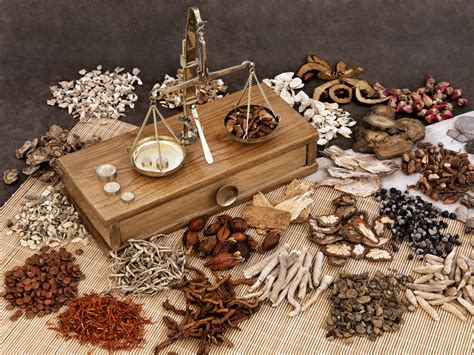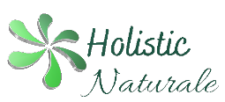What is Chinese Herbal Medicine?

Chinese herbal medicine is one of the major components of Chinese medicine. The Chinese pharmacopoeia lists over 6,000 different medicinal substances in terms of their properties and the conditions that they treat. There are approximately 600 different herbs which are commonly used today.
Herb Characteristics
Herbs are classified on the basis of two major characteristics. The first characteristic refers to the temperature property of the herb, namely hot, warm, cold, neutral, and aromatic. The second characteristic refers to the taste property of the herb, namely sour, bitter, sweet, spicy, and salty.
Temperature
The various combinations of temperature and taste give the herb its properties that can influence the yin and yang energy patterns of the body. For example, sour, bitter and salty tastes relate to yin, whereas acrid and sweet are relate to yang. There are herbs that will warm, cool, tonify, remove stagnation and so on. It is also important to understand that herbs do not possess one quality but are usually a combination of properties and temperatures that may affect several organ systems. Warm herbs can be given to individuals suffering from heat disorders, but the herb with warm energy must be mixed with herbs with cool/cold energy so that the overall balance of the mixture is on the cool side. Likewise, cool herbs can be used with people with cold disorders as long as the overall balance of the mixture is warm. Neutral herbs are those that are neither hot nor cold, and are therefore considered as gentle herbs. There are not many neutral herbs in the pharmacopoeia.
Taste
As for the tastes, sour constricts or consolidates. Herbs with a sour taste are often indicated for use in perspiration due to deficiency, protracted cough, chronic diarrhoea, urinary incontinence, and other conditions related to hypo-metabolism (under-performance). In traditional Chinese medicine, they are seen as deficient or cold patterns.
Herbs with a bitter taste have the effect of clearing heat, emptying the bowels, lowering qi, improving appetite and drying dampness or wetness. Bitter herbs are commonly indicated in fire-heat patterns, such as the acute stage of infectious disease, and the patterns of damp-heat or damp-cold, such as in arthritis.
Herbs with a sweet taste have the effect of toning, improving, moistening and harmonizing many of the important systems of the body, including the digestive, respiratory, immune and endocrine systems. They also relieve urgency and inhibit pain due to the constrictive action of muscles. Sweet herbs are commonly indicated for deficiency patterns such as dry cough, and dysfunction of the gastro-intestinal tract such as spleen and stomach disharmony.
Spicy herbs circulate qi and vitalise blood and are used to treat qi stagnation. These herbs stimulate the sweat glands to perspire, circulate qi, activate the meridians and organs and vitalise blood to promote blood circulation. Spicy herbs have the overall effect of activating and enhancing metabolism. They are commonly indicated for the treatment of external patterns (catching a cold), when the function of the meridians and organs are weakened and circulation of blood has been impeded.
Salty herbs soften firm masses and fibrous adhesions. The salty taste purges and empties the bowels. Salty herbs are often indicated in the treatment of sores, inflammatory masses, and cysts.
Herbal Formulas
A unique characteristic of Chinese herbal medicine is the degree of formulation which is done. In other forms of herbal medicine, especially western herbal medicine, herbs are often used singly or combined into very small formulas of herbs with the same function. In contrast, Chinese herbalists rarely prescribe a single herb to treat a condition; instead they create formulas which usually contain several herbs (at least four to twenty).
Herbal formulas are available in several dosage forms. Pre-made formulas are available as pills, tablets, capsules, powders, etc. Most of these formulas are very convenient and as they do not need to be made by the patient. However, the disadvantage of the pre-made preparations is that the concentration of the herbs in these products is low and do not allow the practitioner to adjust the contents or dosages. These products are usually not as potent as the traditional preparation of decoction.
Decoction
Decoction is the traditional method of preparing herbal medicines. A decoction is a concentrated form of tea. The practitioner weighs out a day’s dosage of each herb and combines them in a bag. A patient is given a bag for each day the herbal formula will be taken. The herbs are then boiled in water by the patient at home. The boiling process usually takes 30-60 minutes and the resulting decoction will be consumed several times during the day.
Another modern way of using herbs is through granulated herbs, which are highly concentrated powdered extracts. These powders are made by first preparing the herbs as a traditional decoction. The decoction is then dehydrated to leave a powder residue. Practitioners can then mix these powders together for each patient into a custom formula. In order to create the decoction the powder is simply placed in hot water. This eliminates the need to prepare the herbs at home while still retaining much of the original decoction’s potency.
Unique for Each Patient
The true benefit of this herbal tradition, as with acupuncture, is that it allows the practitioners to blend formulas to exactly match the symptoms of each individual patient. As a specific formula is created for each patient the clinical effectiveness of the herbs is increased. For the patient this ideally means faster results with less side-effects.
You should never attempt herbal treatment without proper training as some of the herbs are toxic and need to be prepared correctly, while others can have side-effects when not used in proper amounts and/or mixed properly into appropriate formulas.
